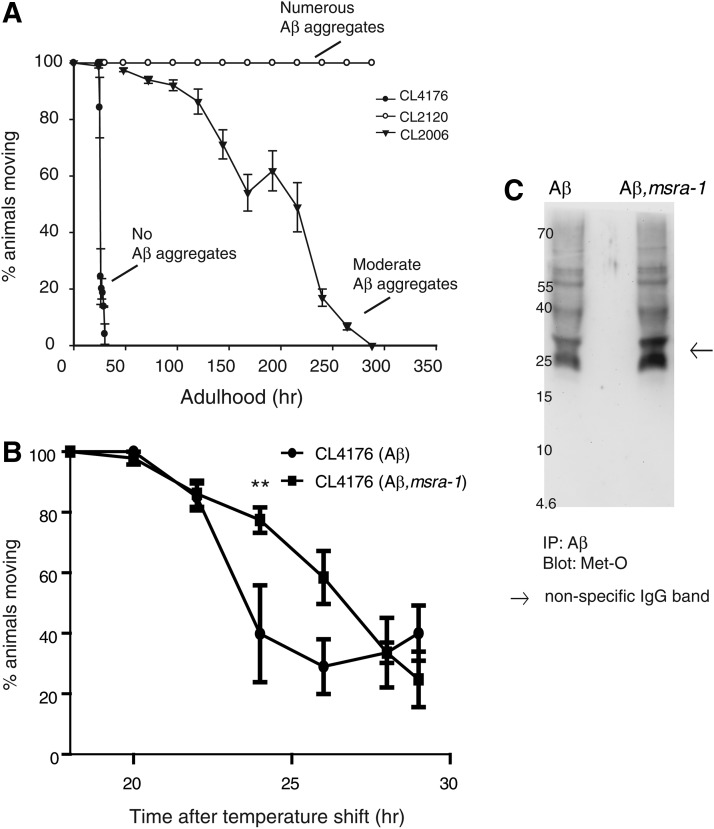FIG. 5.
The absence of MSRA-1 delays paralysis in an inducible strain. (A) In the graph, each curve is the result of at least five independent experiments and it shows the progression of Aβ-induced paralysis in three different Aβ transgenic strains. CL2120 forms numerous Aβ aggregates and does not paralyze over the course of the experiment. CL2120 is the constitutive transgenic Aβ strain we used in all previous experiments. CL2006 is another constitutive Aβ transgenic strain that forms fewer Aβ aggregates than CL2120, and it paralyzes over time. CL4176 is an inducible strain that does not form Aβ aggregates but accumulates large amounts of Aβ. All worms are completely paralyzed 26 h after temperature shift. (B) The graph compares the progression of paralysis in the Aβ-inducible strain in the presence and absence of MSRA-1. In the absence of MSRA-1, paralysis is delayed between 22 and 26 h after temperature shift. By 28 h, there is no difference in the fractions of animals paralyzed in the presence and absence of MSRA-1. Data are means±SEM from at least four independent experiments. Repeated-measures two-way ANOVA followed by Bonferroni's post hoc comparisons tests were used for statistical analysis. **p≤0.01. (C) The Western blot shows oxidative state of Aβ Met35. Aβ was immunoprecipitated from protein extracts of synchronized strains CL4176 (Aβ) and ANM12 (Aβ; msra-1) at 24 h after induction. For the Western blot, the anti-methionine sulfoxide antibody was used.

